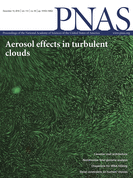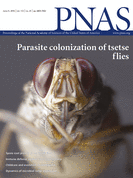
The last decade hasn’t exactly been drama-free for Franck Mauvais-Jarvis, head of the Diabetes Research Program at Tulane University.
After being accused of falsifying three figures in a submitted manuscript, Mauvais-Jarvis sued his accusers and officials at his former employer — Northwestern University — for defamation and conspiracy in 2011.
In 2014, a judge dismissed the suit. We wish we could tell you more details about it—such as what the university’s misconduct investigation found, or how the lawsuit was concluded—but they remain shrouded in mystery. What we know is based on court records from the lawsuit, which we recently obtained through an unrelated public records request. Even without all the details, it’s a long, sordid tale, involving a lot of finger-pointing and allegations of misconduct.
In 2008, a former research technician in the lab of Mauvais-Jarvis, then an associate professor of medicine at Northwestern University, raised concerns of fabrication in two figures in a paper on the regulation of insulin synthesis that had been submitted the Journal of Biological Chemistry. An inquiry committee at the university unanimously concluded that research misconduct charges against Mauvais-Jarvis were not credible.
But then a third figure in the manuscript was found to be “inaccurate,” and the university initiated a second inquiry. That’s when Mauvais-Jarvis — whose papers have been cited more than 2,000 times, according to Clarivate Analytics’ Web of Science, formerly part of Thomson Reuters — initiated a lawsuit. Continue reading A diabetes researcher sued his former employer for defamation. Here’s the story.

 By now, most of our readers are aware that some fields of science have a reproducibility problem. Part of the problem, some argue, is the publishing community’s bias toward dramatic findings — namely, studies that show something has an effect on something else are more likely to be published than studies that don’t.
By now, most of our readers are aware that some fields of science have a reproducibility problem. Part of the problem, some argue, is the publishing community’s bias toward dramatic findings — namely, studies that show something has an effect on something else are more likely to be published than studies that don’t.

 Researchers are retracting two papers about molecular signalling in plants —
Researchers are retracting two papers about molecular signalling in plants — 

